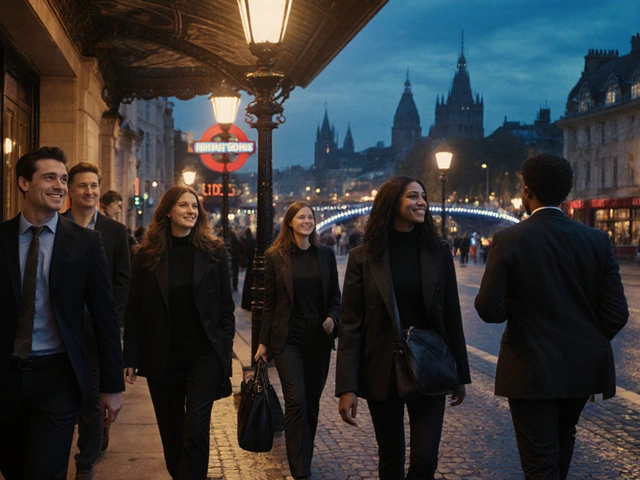Online Safety Tips for London Food Lovers and Nightlife Goers
Scrolling through Instagram for the next hot restaurant? Booking a table on a new app? It’s easy to get excited, but a few simple steps can keep your personal info safe while you chase the best bites in London. Below are practical, no‑fluff tips you can start using right now, whether you’re planning a quiet dinner or a wild night out.
Lock Down Your Apps Before You Book
Most dining reservations happen on apps you probably already have on your phone. Before you tap “confirm,” check that the app requires a password or biometric login. Turn on two‑factor authentication (2FA) for any service that offers it—this adds a second code sent to your phone, making it much harder for hackers to hijack your account.
Don’t forget to read the permissions list. If a food‑delivery app asks for access to your contacts or microphone, it’s a red flag. Stick to the essentials: location, camera for photos, and maybe your calendar if you want reminder alerts.
Protect Your Payment Info When Ordering Out
Using a credit card on a restaurant’s website feels safe, but look for the little padlock icon in the address bar and make sure the URL starts with https. If the site looks sketchy, use a virtual card or a service like Apple Pay that generates a one‑time number instead of exposing your real card details.
For discount codes or last‑minute deals, avoid third‑party sites that ask for full card info. A quick Google search of the site name plus “scam” can reveal if others have been ripped off.
Stay Private on Social Media
Posting a photo of your dinner is fun, but think twice before sharing the exact location and time. Tagging a location in real time lets thieves know when your place is empty. Instead, post after you leave, or blur the background if the venue is recognizable.
Adjust privacy settings so only friends can see your posts. If you’re attending a popular club night, consider turning off location services for the event app until after you’ve arrived. It’s a tiny tweak that keeps bad actors in the dark.
Be Wary of “Too Good to Be True” Offers
Pop‑up food festivals and exclusive club tickets often show up in your inbox or social feeds. If an email asks for your password, asks you to click a strange link, or promises a free meal for a tiny fee, treat it like a phishing attempt. Verify the offer on the official website or call the venue directly.
Scammers love the buzz around new hotspots. A quick check on forums like Trustpilot or the venue’s official social pages can save you from a nasty surprise.
Know Your Rights and Report Issues
If you suspect a breach—say, an unexpected charge or a strange login—report it to the service’s support team immediately. Most apps have a “Report a problem” button. For serious fraud, you can also file a complaint with Action Fraud, the UK’s national fraud reporting centre.
Keeping records of receipts and screenshots makes it easier to prove what happened. And remember, most credit cards offer zero‑fraud liability, so you won’t be stuck paying for a dishonest transaction.
Enjoying London’s food and nightlife doesn’t have to be risky. By locking down apps, guarding payment info, staying smart on social media, and watching out for scams, you’ll spend more time savoring great meals and less time worrying about online threats. Happy and safe dining!
Adult Guides to Digital Literacy: Navigating the Online World
In today's fast-evolving digital landscape, understanding how to navigate the online realm safely and efficiently is crucial for adults. This guide offers practical advice on enhancing digital literacy skills, exploring safe browsing habits, and understanding various online tools and platforms. It also touches on recognizing scams and maintaining privacy. Whether you're new to the internet or looking to upgrade your skills, this comprehensive guide provides the insights needed to become a savvy digital user.






